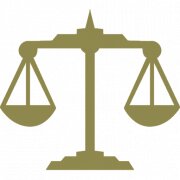Best Faith-Based Law Lawyers in Switzerland
Share your needs with us, get contacted by law firms.
Free. Takes 2 min.
Or refine your search by selecting a city:
List of the best lawyers in Switzerland

About Faith-Based Law in Switzerland
Faith-Based Law in Switzerland is a nuanced field that encompasses the intersection of religious beliefs and legal principles. This area of law seeks to harmonize the traditional religious norms with the secular legal system governing the country. While Switzerland is primarily a secular state, it recognizes the significance of religious freedom and allows for religious communities to adhere to their internal religious laws within certain legal frameworks. This permits diverse religious communities to practice autonomously, provided they comply with the overarching Swiss legal standards.
Why You May Need a Lawyer
Faith-Based Law encompasses a wide range of matters, including marriage, inheritance, religious gatherings, and educational practices, which could lead individuals to seek legal advice. Common situations where one may require legal assistance in this field include:
- Navigating religious and civil law conflicts in marriages or divorces.
- Understanding inheritance rights according to both religious and civil law.
- Resolving employment disputes involving religious discrimination or accommodations.
- Compliance issues with religious institutions in terms of state regulations.
- Understanding the legal impact of religious conversions or renunciations.
- Guidance on religious practices and their recognition under Swiss law.
Local Laws Overview
Switzerland's legal framework accommodates religious communities, allowing them to self-regulate in certain areas. Key aspects of local laws relevant to Faith-Based Law include:
- Freedom of Religion: As enshrined in the Swiss Constitution, individuals have the right to practice their religion freely, providing a foundation for Faith-Based Law.
- State and Religion: Switzerland has no official state religion, but it supports church tax systems in some cantons, integrating religious operations within legal structures.
- Marriage and Family Law: While civil marriage contracts are legally binding, religious ceremonies hold personal significance without legal standing unless accompanied by a civil contract.
- Employment Laws: Employers must respect religious practices unless they interfere significantly with work obligations or are unjustly discriminatory.
Frequently Asked Questions
What is Faith-Based Law?
Faith-Based Law refers to legal matters that involve the personal, family, or community laws derived from religious beliefs and how they interact with state laws.
Does Switzerland recognize religious marriages?
Switzerland recognizes civil marriages as legally binding. Religious ceremonies are supplementary to civil registration and do not confer legal status.
Can a religious community establish its own legal system?
While religious communities can adhere to their own norms for internal governance, they must comply with Swiss state laws where applicable.
How does Switzerland handle conflicts between state and religious laws?
Conflicts are generally resolved by prioritizing constitutional rights and ensuring that religious practices do not infringe upon Swiss legal standards.
Are there specific protections for religious practices in the workplace?
Yes, Swiss employment law requires reasonable accommodations for religious practices unless they cause undue hardship to the employer or workplace.
What legal recourse is available for religious discrimination?
Victims of religious discrimination can seek redress through legal channels, including filing complaints with relevant authorities or pursuing civil actions.
How are religious educational institutions regulated?
Religious educational institutions must adhere to Swiss educational standards while being allowed to incorporate religious teachings within their curricula.
Is religious attire protected by Swiss law?
While religious attire generally receives protection under freedom of religion, specific regulations may apply in schools, workplaces, or government settings.
What role do cantons play in Faith-Based Law?
Cantons have significant authority over religious matters and may implement additional regulations, such as church taxes or recognition of religious communities.
Can foreign religious laws be recognized in Switzerland?
Foreign religious laws may be recognized under private international law, provided they conform to Swiss legal standards and public policy.
Additional Resources
Here are some helpful resources for those seeking additional support or information on Faith-Based Law in Switzerland:
- Swiss Federal Office of Justice
- Local Cantonal Legal Authorities
- Organizations such as the Swiss Council of Religions
- Legal aid services and pro bono legal counseling organizations
Next Steps
If you need legal assistance in Faith-Based Law, consider the following steps:
- Identify the specific issue and whether it falls into civil, family, or employment law.
- Contact a lawyer specializing in Faith-Based Law in Switzerland to assess your situation and guide you appropriately.
- Gather relevant documentation, including religious and civil records, to prepare for consultations.
- Consult with legal aid services if affordability is a concern.
- Engage with local religious organizations that may offer guidance and support in navigating legal challenges.
Lawzana helps you find the best lawyers and law firms in Switzerland through a curated and pre-screened list of qualified legal professionals. Our platform offers rankings and detailed profiles of attorneys and law firms, allowing you to compare based on practice areas, including Faith-Based Law, experience, and client feedback.
Each profile includes a description of the firm's areas of practice, client reviews, team members and partners, year of establishment, spoken languages, office locations, contact information, social media presence, and any published articles or resources. Most firms on our platform speak English and are experienced in both local and international legal matters.
Get a quote from top-rated law firms in Switzerland — quickly, securely, and without unnecessary hassle.
Disclaimer:
The information provided on this page is for general informational purposes only and does not constitute legal advice. While we strive to ensure the accuracy and relevance of the content, legal information may change over time, and interpretations of the law can vary. You should always consult with a qualified legal professional for advice specific to your situation.
We disclaim all liability for actions taken or not taken based on the content of this page. If you believe any information is incorrect or outdated, please contact us, and we will review and update it where appropriate.
Browse faith-based law law firms by city in Switzerland
Refine your search by selecting a city.













